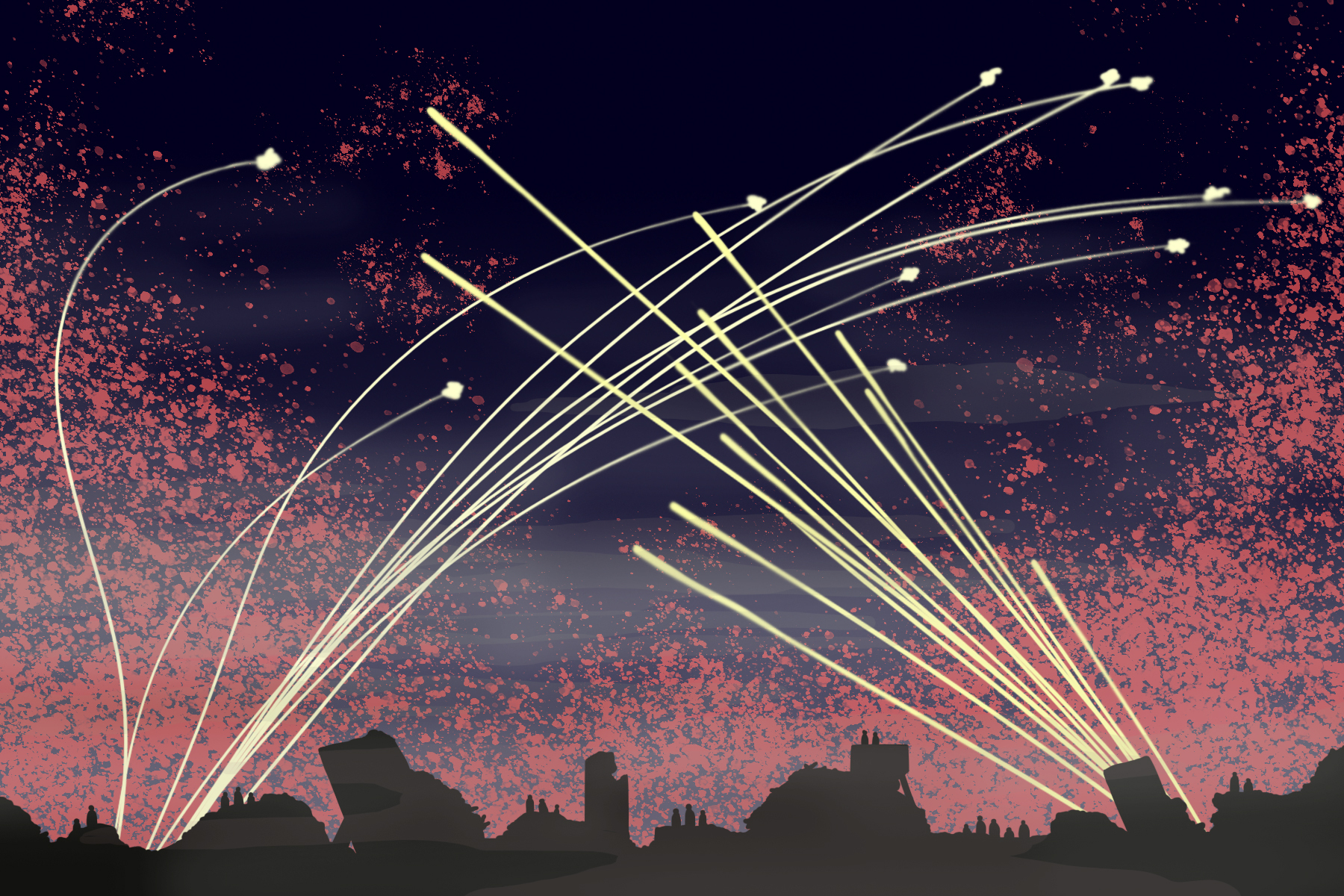As the Ottoman Empire began to disintegrate in the midst of World War I, the British Empire announced its support for a “national home for the Jewish people” in then Ottoman-controlled Palestine. The State of Israel would be founded 31 years later, and in the years since, the area between the Dead Sea and the Mediterranean Sea — known as the Holy Land — has seen much violence and conflict, as both Palestinians and Israelis believe they have a right to the land.
Over time, Israel has slowly expanded throughout the West Bank, encroaching on Palestinian territory. Vox, citing the growth of Israeli settlements in the West Bank, found that since the early 1980s, the Jewish settler population there has increased from under 10,000 to well above 300,000 by 2012. Israeli attacks on Palestinians have increased throughout the last couple of years, in what has been described by many as an attempt at ethnic cleansing. Zara Irshad, in their article “The Ethnic Cleansing of Palestinians is Not a Conflict, it’s Colonialism,” argued that the “horrific footage of Israeli airstrikes on Gaza this past week which have killed upward of 200 innocents Palestinians” should be categorized as an attempt to oppress and uproot Palestinians, rather than a conflict from both sides.
Israel’s occupation of the West Bank has continued for 54 years, and the Gaza Strip has been blockaded since Israel’s withdrawal in 2005. Proposals for solutions vary, but a significant portion of the people in the region desire a two-state solution; the two-state solution would create an independent Palestine and an independent state of Israel, but leaders of the two nations are not necessarily responsive to the will of the people.
The two-state solution is ideal to many, but the power of the Israeli government over Palestinians is undeniable. In a USA Today article, Joost Hiltermann, an expert on the conflict, stated, “The best-case scenario now, some believe, is a stalemate and return to the status quo. The worst-case scenario: a one-state solution in which Israelis continue to expand their settlements and control all the levels of power while the Palestinians are increasingly marginalized, politically and economically.”
While the two-state solution may be unobtainable due to power differences between the two states, the current reality is a one-state solution. Marwan Muasher argued, “The question is becoming increasingly: Is this reality going to turn into an apartheid state or a democratic state?” Simply reverting to a state in which active discrimination was ignored by the media will not create a state in which Palestinians are represented or respected.
American Perception
The American understanding of the Israel-Palestine conflict is often distorted compared to the reality of the situation. In The Atlantic’s “Israel’s Problems are Not Like America’s,” Matti Friedman argues that the American perception of the conflict attempts to compare conflicts abroad with conflicts that exist within the United States. Friedman references Rep. Rashida Tlaib of Michigan when she said, “What they are doing to the Palestinian people is what they continue to do to our Black brothers and sisters here,” as well as celebrity statements that “Palestinian Lives Matter,” which “echoes the American protests for racial justice.”
The reality of the Israel-Palestine conflict is arguably more complicated than what Americans can understand, especially those that simply compare it to U.S. politics. The religious aspect of the conflict has allowed some to justify atrocities. Pastor John Hagee, a Christian Zionist, argues that the growth of Israel will usher in the second coming of Christ and therefore Israel has the biblical right to the Holy Land. Modern Israeli attacks on Palestinians often use their supposed religious right to the Holy Land as justification for violence or encroachment. While racial conflict in the United States can be used to understand the dynamics of the Israel-Palestine conflict, the reality of the situation is more complex.
Concerns Over Antisemitism
Supporting the state of Israel and being Jewish are not the same thing, yet many Jews have reported an increase in antisemitism due to the Israel-Palestine conflict. It is important to distinguish between the Israeli state and the Jewish population. Even within Israel, many Jewish people are opposed to the actions of the Israeli government. CNN’s article “Young Jewish Americans rocked by new hate fueled by Israel-Palestine conflict” quotes Merav Fine Braun, the executive director of Hunter College’s Hillel chapter, who says, “I think the tsunami of [antisemitic violence] was what was most surprising — the rapid escalation and the vitriol of it.” Antisemitic attacks have increased significantly since the latest violence in the Israel-Palestine conflict.
The New York Times article “The Crisis of Anti-Semitic Violence” argues that “Violence between Jews and Muslims in the Middle East is often accompanied by spikes in anti-Semitic activity in the United States, but what’s happened over the last week or so has been different.” The article cites multiple attacks on Jewish people in the United States that some argue mirror the antisemitism that spiked after the election of Donald Trump in 2016.
Conclusion
The Israel-Palestine conflict has a complicated past that, in some cases, uses religion as a justification for violence or persecution. The conflict began long ago but has been exacerbated by Israel’s encroachment on the West Bank and Gaza Strip, as well as the ethnic cleansing of Palestinians within these areas. While the conflict has led to increased attacks against Jewish people worldwide, outcries against the Israeli government are not antisemitic attempts at tearing apart a Jewish nation, but simply attempts to hold accountable a government that has been persecuting, disenfranchising and massacring a religious minority.
It is important to recognize that the actions of the Israeli state are not associated with the actions of the Jewish community as a whole. While the two-state solution seems to be an ideal way to solve the conflict, the power struggle between the Israelis and Palestinians is much more complicated than the American perspective often makes it out to be.

















